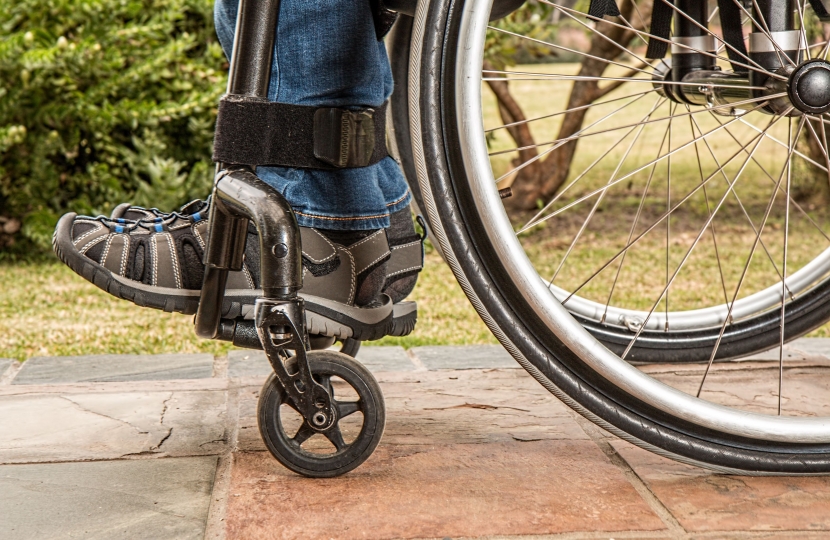
Shadow Minister for Social Justice and North Wales MS Mark Isherwood, who Chairs the Cross Party Groups on Disability, on Deaf Issues and on Autism in the Welsh Parliament, has called on the Welsh Government to ensure that it and all other public bodies in Wales meet the needs of disabled people.
Questioning the Social Justice Minister in yesterday’s meeting of the Welsh Parliament, Mr Isherwood said despite legislation being in place to ensure disabled people can access the support and services they need, “certain public bodies repeatedly feign ignorance of all of this legislation”.
He also criticised the “Welsh Government's reactive response to the needs of disabled people in the first several months of the pandemic” and called on the Minister to ensure that such a response is never seen again.
Addressing the Minister he said:
“The 2021 theme of the International Day of Disabled People on 3rd December is 'Fighting for rights in the post-COVID era', celebrating the challenges, barriers and opportunities for disabled people. As you know, I've chaired the Cross Party Group on Disability over a number of Senedd terms, and our purpose is ‘to address key pan-impairment disability equality issues including implementation of the Social Model of Disability and the right to independent living’. As you know, the Social Model of Disability recognises that people are not disabled by their impairments but by the barriers that society places in their way, and we must work together to remove barriers to access and inclusion for all.
“The UK Equality Act 2010 states that ‘service providers must think ahead and take steps to address barriers that impede disabled people’ and ‘you should not wait until a disabled person experiences difficulties using a service’.
“The Social Services and Well-being (Wales) Act 2014 ‘puts in place a system where people are full partners in the design and operation of care and support; it gives people clear and unambiguous rights and responsibilities’.
“However, I continue to receive a never-ending stream of constituent casework, particularly involving certain Public Bodies which repeatedly feign ignorance of all of this legislation, telling people what they can or cannot have and focusing on interventions based on behaviour, not what is driving that behaviour, rather than asking people are they in pain and what do they want to achieve.
“So, when and how in practice will the Welsh Government begin meaningful monitoring and enforcement of the implementation of this legislation by the Public Bodies charged with so doing after all these years?
“And how will you ensure that we never again see a repeat of the Welsh Government's reactive response to the needs of disabled people in the first several months of the pandemic, where, for example, the Welsh Government only reacted after Guide Dogs and the RNIB highlighted the barriers being created for blind and partially sighted people and others by Welsh Government funded changes to shared spaces in town centres; only reacting after adults with learning disabilities and people with sensory loss highlighted the absence of accessible communication for them around coronavirus regulations and restrictions; and finally as an example, only reacting to the needs of Autistic people and others who needed to travel further for exercise after their parents raised this with me, from North and South Wales, and I had to raise it in the Chamber before changes were made?”
Speaking afterwards, Mr Isherwood added:
“In her response, the Minister insisted that the Welsh Government did much to ensure disabled people were supported at the start of the pandemic, but this is not what was reported to me by many disabled constituents here in North Wales.”
